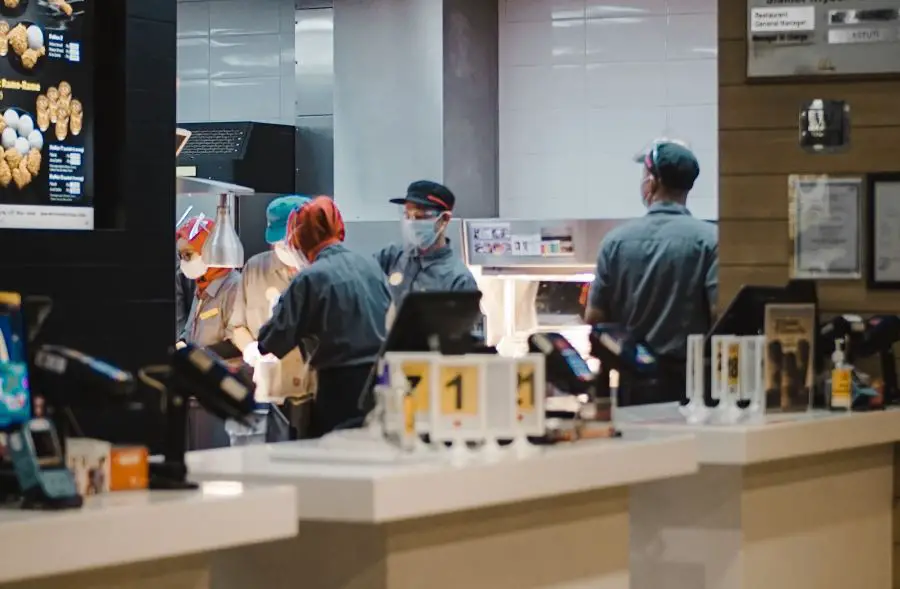Deciding to leave a job, especially after just two weeks, can be difficult. If you find yourself in a situation where you are contemplating quitting your position at McDonald’s early, it’s essential to understand the various factors involved.

This article provides comprehensive information on whether leaving McDonald’s after two weeks of employment is possible, the potential consequences, and the best way to navigate this situation.
Understanding Your Employment Status
Before making any decisions, it is essential to have a clear understanding of your employment status at McDonald’s. Different employment arrangements exist, such as full-time, part-time, and temporary.
Each type may have its own set of rules and regulations regarding resignation.
Different Types of Employment
At McDonald’s, employees can be categorized as either crew members or managers. Crew members typically work part-time shifts, while managers hold full-time positions with additional responsibilities.
The specific terms of employment can vary depending on local labor laws and individual contracts.
Probation Period and Notice Requirements
There is a probationary period in many positions during which employees and employers assess their compatibility. It is generally easier for either party to terminate the employment relationship during this period.
However, it is essential to review the terms of the probation period outlined in your employment contract or company policies.
Additionally, most employers, including McDonald’s, have notice requirements for resignations. The notice period typically ranges from one to two weeks, allowing sufficient time for the employer to find a replacement.
It is essential to review any contractual obligations or agreements related to notice periods before submitting your resignation.
Deciding to Quit Early
Weighing Personal and Professional Factors
Quitting a job after just two weeks should not be taken lightly. Considering the personal and professional factors that led to this decision is crucial.
Reflect on the reasons why you are considering leaving and evaluate if there are any alternatives or solutions that could address your concerns.
Impact on Your Work History
Leaving a job prematurely can have implications for your work history. Future employers may question your commitment and reliability if they see a pattern of short tenures on your resume.
Evaluating the potential impact on your long-term career goals is essential before making a final decision.
Pros and Cons of Quitting McDonald’s After Two Weeks
When considering quitting your job at McDonald’s after just two weeks, weighing the potential pros and cons is essential. Here are some factors to consider:
Pros:
- Early recognition of a poor fit: Quitting early lets you recognize if the job or work environment is unsuitable. This can prevent long-term dissatisfaction and save you time and energy in a role that isn’t a good fit.
- Freedom to explore other opportunities: Leaving McDonald’s early allows you to actively search for other job opportunities that may align better with your career goals and interests.
- Avoiding burnout: If you realize quickly that the demands or stress of the job are overwhelming, leaving early can help you avoid burnout and preserve your mental and emotional well-being.
Cons:
- Negative impression on future employers: Quitting a job after just two weeks can raise concerns for prospective employers who may question your commitment and reliability. It is essential to be prepared to address this during future job interviews.
- Limited experience: Leaving early means taking advantage of further skill development and expertise that could benefit your future career prospects.
- Financial implications: If you quit without another job lined up, it may lead to economic uncertainty and instability until you secure a new source of income.
- Impact on references: Quitting early may make obtaining positive references from your time at McDonald’s difficult, which could be valuable when applying for future positions.
Communicating with Your Supervisor
When resigning from McDonald’s or any job, it is essential to communicate your intentions clearly and professionally. Here are some steps to follow when engaging with your supervisor:

Scheduling a Meeting
Request a meeting with your supervisor to discuss your decision to resign. This allows for a face-to-face conversation where you can express your thoughts and concerns.
Expressing Your Intentions Clearly
During the meeting, be transparent about your decision to leave. Express your gratitude for the opportunity and explain your reasons for resigning. Maintaining a respectful tone and avoiding burning bridges with your supervisor or colleagues is essential.
Following Proper Resignation Etiquette
It is advisable to follow proper resignation etiquette to maintain professionalism and leave on good terms. Consider the following guidelines:
Providing Notice, If Possible
If your employment contract or company policies require a notice period, adhere to this requirement. Giving your employer sufficient time to find a replacement demonstrates professionalism and respect for their needs.
Fulfilling Shift Obligations
During your remaining time at McDonald’s, fulfill your shift obligations to the best of your ability. Be punctual, complete your tasks, and maintain a positive attitude. This helps ensure a smooth transition for both your colleagues and the management.
Handling Feedback and Exit Interviews
McDonald’s or your employer may conduct exit interviews to gather feedback regarding your experience and reasons for leaving. Here are some points to consider during this process:
Sharing Your Reasons
During exit interviews, be honest and constructive when sharing your reasons for resigning. Highlight positive aspects of your experience and areas where improvements could be made.
This feedback can contribute to enhancing the work environment for future employees.
Receiving Constructive Feedback
Take the opportunity to listen to any feedback or suggestions your employer provides. Constructive criticism can help you learn from your experience and improve professionally in future roles.
Impact on Future Employment
Quitting a job after two weeks may raise questions during future job interviews. Here are some factors to consider when explaining brief tenures:
Consideration of Short-Term Jobs
Be prepared to discuss your short tenure at McDonald’s during future job interviews. Emphasize the skills and experiences gained, even if the duration was brief.
It is crucial to convey that you are committed to gaining long-term employment and that your decision to leave McDonald’s early was unique.
Emphasizing Growth and Learning
When discussing your brief tenure, focus on the lessons learned and the growth you experienced at McDonald’s. Highlight any skills or qualities you developed that are transferable to future roles.

Providing Positive References
If possible, maintain a positive relationship with your supervisor and colleagues at McDonald’s. Ask for their permission to use them as references in future job applications.
Positive references can mitigate concerns about your short tenure and demonstrate your professionalism and work ethic.
Conclusion
Deciding to quit McDonald’s after just two weeks is a serious decision that should be carefully considered.
Understanding your employment status, communicating with your supervisor, and following proper resignation etiquette are crucial steps to navigate this situation professionally.
While leaving a job early may have implications for your work history, overcoming these challenges by emphasizing the skills and experiences gained during your short tenure is possible.
Remember, every experience contributes to your professional growth and development, and it is essential to approach future opportunities with a positive outlook.






